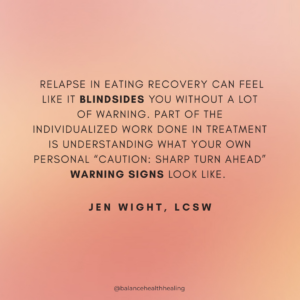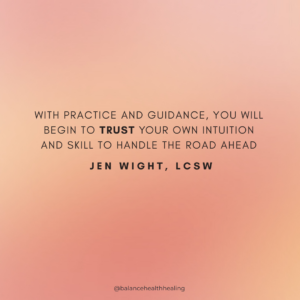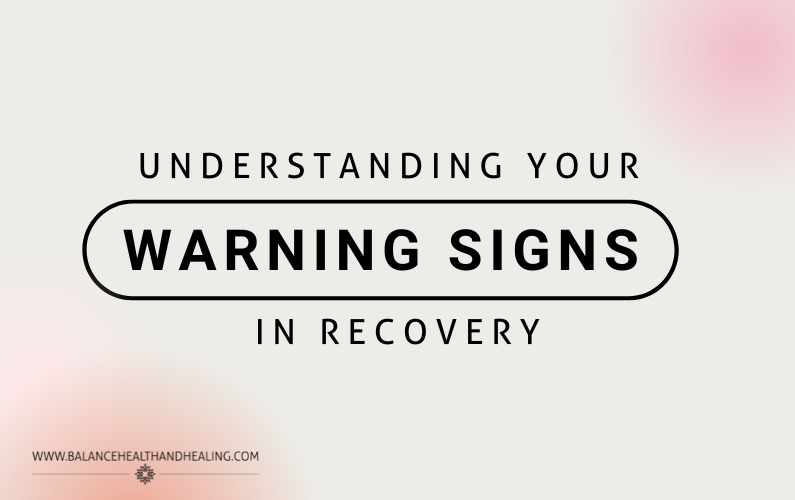We have a brand new 16 year old at our house, and with that has come the experience of teaching another young driver the ropes. Having been a driver myself for- well, many years- I recognized while teaching my daughter that there are a lot of things about driving that I forgot I once didn’t know or understand.
Road signs, for example- somehow, my brain has managed to intake information from a road sign (speed limit, turn lane instructions, sharp turn warnings) and make needed adjustments without spending a lot of time actually thinking about or processing the warning signs. It’s become a streamlined, automatic process.
Personal relapse warning signs in recovery 
At times, relapse in eating recovery can feel like it blindsides you without a lot of warning. Part of the individualized work done in treatment is understanding what your own personal “caution: sharp turn ahead” warning signs look like.
Do you see the new school semester approaching and recognize some personal warning signs of stress? Do you feel more present depressive symptoms and have awareness of your mental health shifting?
Matching skills to meet signs
Just like when you are driving through a canyon and you see a sign indicating a sharp turn ahead– you instinctively slow and become more alert of your surroundings– you can also learn to match the needed recovery skills with personal warning signs you work to become attuned to.
Similarly to when you once learned to drive, skills in eating recovery can feel overwhelming or confusing as you first begin to practice them. But with practice and guidance, you will begin to trust your own intuition and skill to handle the road ahead.
Focus on micro habits of mental wellness
Responding to personal warning signs is highly individualized, but a good place to begin is to examine what I look at as the “micro habits” of mental wellness.  Generally, when stressed, people start to neglect the basics that keep them going in the right direction. These little habits that our well being rests upon- things like sleeping enough, staying hydrated, eating to nourish our bodies, staying connected in our meaningful relationships- can start to feel like “one more thing” and become neglected.
Generally, when stressed, people start to neglect the basics that keep them going in the right direction. These little habits that our well being rests upon- things like sleeping enough, staying hydrated, eating to nourish our bodies, staying connected in our meaningful relationships- can start to feel like “one more thing” and become neglected.
When you recognize your personal warning signs, it’s helpful to take inventory of these micro habits. How are you prioritizing time for yourself? Are you remaining mindfully aware of your eating? Do you need a nap?
Noticing your signs and making little adjustments to ensure successful navigation can help you develop insight into yourself and build a roadmap helping you understand the unique terrain of your own recovery. As you do this work, these processes will start to become more automatic- noticing and responding to warning signs- and will continue to ensure you safely arrive at your intended destination.

